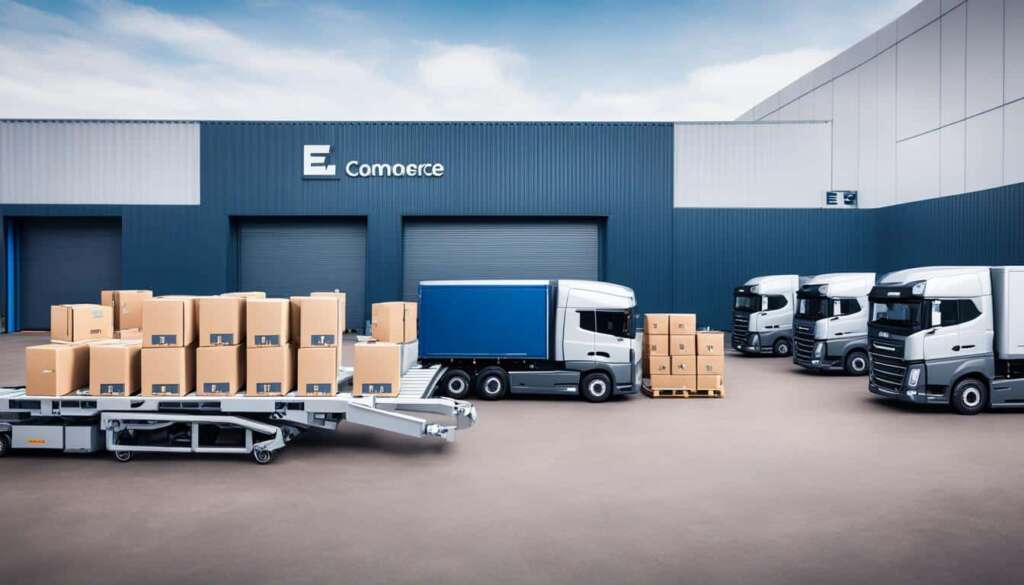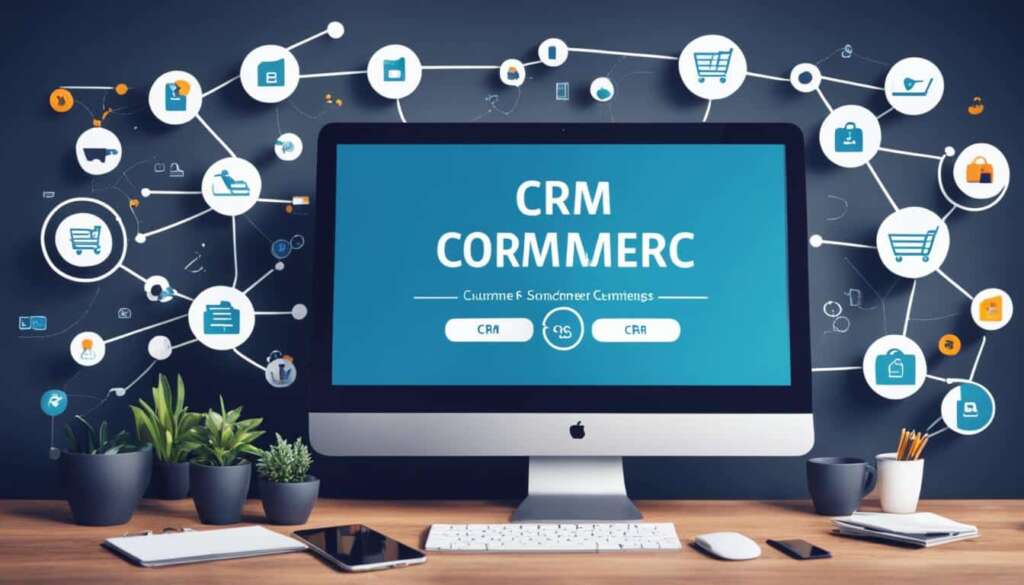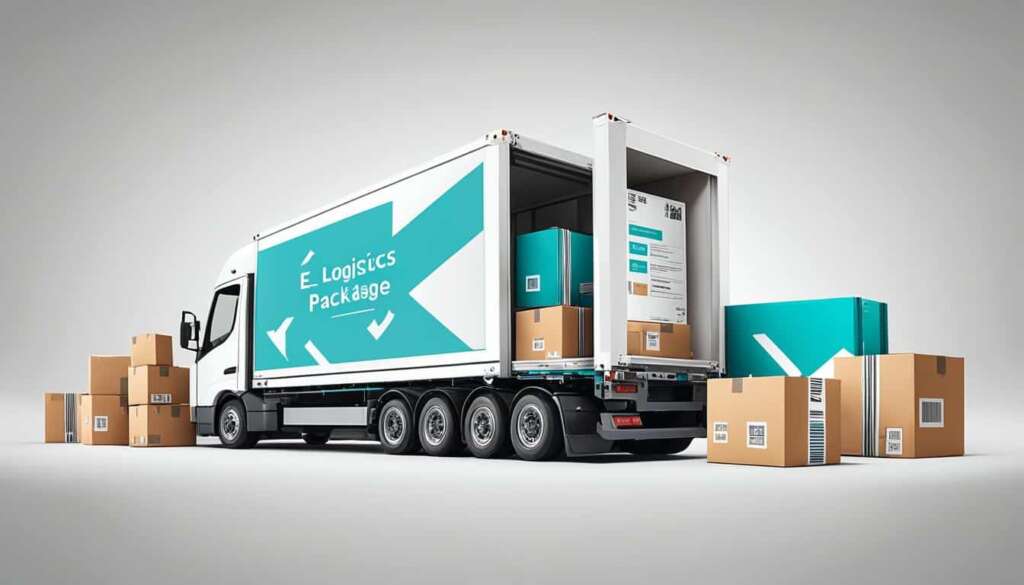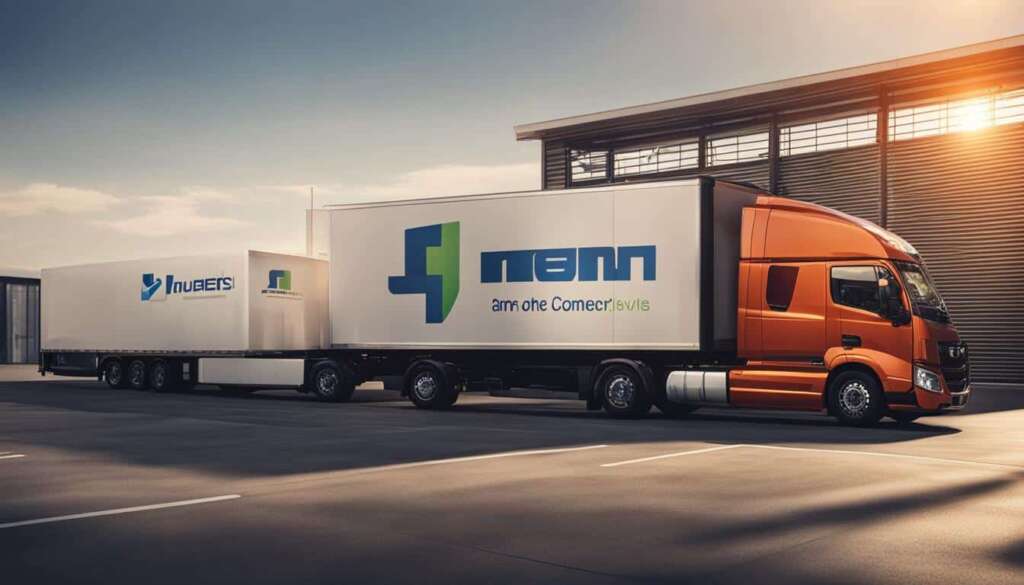Table of Contents
Streamlining e-commerce fulfilment is crucial for companies looking to improve margins, customer satisfaction, and reduce costs. By implementing best practices and optimizing warehouse and fulfilment operations, businesses can offer reliable and fast shipping to improve customer conversion and reorder rates. One key practice is linking order management and fulfilment services to automate tracking updates and improve customer service. Additionally, integrating CRM solutions can speed up service requests and provide proactive notification to customers. Another strategy is optimizing shipping location based on customer proximity to reduce expenses and meet promised delivery dates. Implementing scans and order checks can minimize errors and improve accuracy in the fulfilment process. Setting rules for carrier and shipping service selection and standardizing fulfilment rules for different products can also streamline the process. Replenishment should be given priority to avoid overstocking and stockouts, ensuring customers’ demands are consistently met. Overall, businesses need to assess their current capabilities and plan for growth by addressing manual processes, improving communication, and monitoring performance in order to streamline e-commerce fulfilment effectively.
In section 2, we will discuss how planning ahead and accurately forecasting demand can contribute to efficient e-commerce fulfilment during peak seasons.
Plan Ahead and Forecast Demand
Planning ahead and accurately forecasting demand are crucial for efficient e-commerce fulfilment during peak seasons. By analyzing sales data, inventory levels, marketing campaigns, and external factors such as holidays and weather, businesses can forecast demand and plan ahead to meet customer expectations while minimizing costs and inventory management challenges.
Implementing inventory management strategies based on forecasted demand allows businesses to optimize their product availability, ensuring they have enough resources and capacity to fulfill orders promptly. The ability to forecast demand also helps businesses avoid stockouts, preventing missed sales opportunities and customer dissatisfaction.
To streamline fulfilment, automation and integration of key systems such as order management, inventory management, shipping, and tracking are essential. By connecting these systems, businesses can efficiently manage the flow of goods, track inventory, and provide real-time updates to customers on their order status.
Optimizing Warehouse Operations
An efficient warehouse layout and workflow are key to optimizing fulfilment processes. By designing and organizing space effectively, businesses can minimize unnecessary movement, reduce picking and packing time, and improve overall productivity.
Standardizing procedures and eliminating bottlenecks further contribute to the smooth operation of the warehouse. By creating standardized processes for receiving, storage, picking, packing, and shipping, businesses can minimize errors and ensure consistency in fulfilment operations.
Training and motivating staff are critical components of a seamless fulfilment process. Through effective communication and collaboration, employees can better understand their responsibilities, work together harmoniously, and maintain high levels of productivity and accuracy.
Monitoring Performance and Continuous Improvement
In the ever-evolving e-commerce landscape, monitoring performance and gathering feedback are essential for continuous improvement. By measuring key performance indicators (KPIs) such as order accuracy, on-time delivery, and customer satisfaction, businesses can identify areas for improvement and implement actionable changes.
Collecting feedback from customers and employees provides valuable insights into the strengths and weaknesses of the fulfilment process. By listening to customer feedback and adapting accordingly, businesses can enhance customer satisfaction and loyalty.
Continuous improvement should be driven by a commitment to optimizing e-commerce fulfilment. Whether through technology upgrades, process enhancements, or employee training, businesses must continuously strive to improve their fulfilment operations.
Importance of Fulfilment in E-commerce Strategy
Fulfilment plays a crucial role in the success of an e-commerce strategy. It directly impacts customer experiences and influences repeat purchases. Two key factors that contribute to customer satisfaction and drive conversions are fast shipping and accurate tracking. Providing timely and reliable shipping services enables businesses to meet customer expectations and stand out from the competition.
Offering expedited shipping options not only improves customer experience but also attracts more clicks on ads, increasing the visibility and reach of your business. Additionally, providing features like free shipping, real-time tracking, and in-store pickup can further enhance conversion rates by offering customers convenient choices.
Friction points in the checkout process, such as slow shipping speed, unexpected charges, and limited payment options, can deter customers from making a purchase. By prioritizing fulfilment and addressing these issues, businesses can minimize cart abandonment rates and build brand equity.
A positive delivery experience acts as a crucial touchpoint for customers. It can leave a lasting impression and lead to positive reviews and recommendations
Investing in a scalable and flexible fulfilment strategy is necessary to support the growth of an e-commerce business. Companies can choose to manage fulfilment in-house or outsource it to specialized providers. Regardless of the approach, the focus should be on providing efficient and reliable shipping services to ensure customer satisfaction and loyalty.
An optimized fulfilment strategy not only streamlines operations but also strengthens customer relationships, improves brand reputation, and fosters business growth. By continuously evaluating and improving fulfilment processes, businesses can adapt to changing customer demands and deliver exceptional experiences at every stage of the e-commerce journey.
To illustrate the importance of fulfilment in an e-commerce strategy, consider the following table:
| Benefits of Efficient Fulfilment in E-commerce Strategy | Impacts |
|---|---|
| Fast shipping | Positive customer experience |
| Accurate tracking | Repeat purchases |
| Free shipping | Improved click-through rates |
| Real-time tracking | In-store pickup |
| Reduced cart abandonment rates | Enhanced brand equity |
| Positive reviews and recommendations | Strengthens brand reputation |
| Scalable and flexible fulfilment | Supports business growth |

As shown in Figure 1, efficient fulfilment has a direct impact on customer experience, repeat purchases, click-through rates, and brand equity. Investing in a robust fulfilment strategy is essential for e-commerce businesses looking to thrive in a competitive market.
Fulfilment as a Competitive Advantage
Fulfilment plays a crucial role in creating a positive first impression and building brand equity. The delivery experience can impact customer satisfaction, brand perception, and the likelihood of repeat purchases. Offering fast and reliable shipping, along with transparent tracking, helps meet customer expectations and differentiate a brand from competitors. Studies show that customers are more likely to click on ads that mention fast and free shipping. Cart conversion rates can be significantly improved by offering fast shipping options at checkout. A smooth and efficient checkout and fulfilment process contribute to reducing cart abandonment rates and increasing customer loyalty. Customers who receive their orders on time and have a pleasant delivery experience are more likely to leave positive online reviews, recommend the brand to others, and make future purchases. Therefore, investing in an optimized fulfilment strategy can be a competitive advantage in the e-commerce market.
“Fast and reliable shipping, along with transparent tracking, helps meet customer expectations and differentiate a brand from competitors.”
Importance of Fulfilment in Building Brand Equity
| Benefits | Impact on Brand Equity |
|---|---|
| Positive first impression | Enhances brand reputation and perception |
| Fast and reliable shipping | Positions the brand as trustworthy and customer-centric |
| Transparent tracking | Builds trust and reduces anxiety by providing real-time updates |
| Pleasant delivery experience | Leaves a lasting impression, increasing the likelihood of positive reviews and word-of-mouth recommendations |
A well-executed fulfilment strategy not only meets customer expectations but also strengthens the overall brand image. By prioritizing fast shipping, transparent tracking, and a seamless delivery experience, businesses can build brand equity and gain a competitive edge in the e-commerce market.
Conclusion
Efficient e-commerce fulfilment is the cornerstone of a successful growth strategy and ensuring customer satisfaction. By implementing best practices, integrating systems, optimizing warehouse operations, and providing proper training to staff, businesses can improve their efficiency and meet the expectations of their customers. Prioritizing fulfilment as part of the overall e-commerce strategy, from the front-end to the checkout process, is crucial for creating a seamless customer experience and boosting conversions.
Clear communication and collaboration with partners, combined with continuous monitoring of performance and constant process improvement, are key elements for long-term success. E-commerce businesses should invest in scalable and flexible fulfilment solutions that can adapt to their growth and the evolving demands of their customers. By streamlining the fulfilment process, businesses can enhance customer satisfaction, build brand equity, and significantly contribute to the overall success of their e-commerce operations.
To sum up, by embracing efficient e-commerce fulfilment, companies can create a solid foundation for their growth strategy and ensure high levels of customer satisfaction. With careful implementation and continuous optimization, businesses can elevate their operations, meet customer expectations, and secure a competitive edge in the ever-expanding e-commerce market.
FAQ
Why is streamlining e-commerce fulfilment important for businesses?
Streamlining e-commerce fulfilment is important for businesses because it improves margins, customer satisfaction, and reduces costs. It enables reliable and fast shipping, which improves customer conversion and reorder rates.
What are some best practices for optimizing warehouse and fulfilment operations?
Some best practices for optimizing warehouse and fulfilment operations include linking order management and fulfilment services to automate tracking updates, integrating CRM solutions to speed up service requests, optimizing shipping location based on customer proximity, implementing scans and order checks to minimize errors, and setting rules for carrier and shipping service selection.
How can businesses plan ahead and forecast demand for efficient e-commerce fulfilment?
Businesses can plan ahead and forecast demand for efficient e-commerce fulfilment by analyzing sales data, inventory levels, marketing campaigns, and external factors such as holidays and weather. This helps them avoid stockouts and overstocking, ensuring they have enough resources and capacity to meet customer expectations.
What are some strategies for optimizing warehouse layout and workflow?
Some strategies for optimizing warehouse layout and workflow include designing and organizing space, standardizing procedures, eliminating bottlenecks, and implementing automation and integration of order management, inventory management, shipping, and tracking systems.
How important is fulfilment in an e-commerce strategy?
Fulfilment plays a crucial role in an e-commerce strategy as it ensures excellent customer experiences and repeat purchases. Fast and reliable shipping, along with accurate tracking, contributes to customer satisfaction and attracts clicks on ads.
What can businesses do to minimize cart abandonment rates and build brand equity?
Businesses can minimize cart abandonment rates and build brand equity by prioritizing fulfilment, offering options like free shipping and real-time tracking, optimizing the checkout process, and providing a positive delivery experience. Investing in a scalable and flexible fulfilment solution is also necessary to support the growth of an e-commerce business.
How can a streamlined fulfilment process benefit an e-commerce business?
A streamlined fulfilment process can benefit an e-commerce business by enhancing customer satisfaction, building brand equity, and contributing to the overall success of the business. It creates a seamless customer experience and drives conversions.













